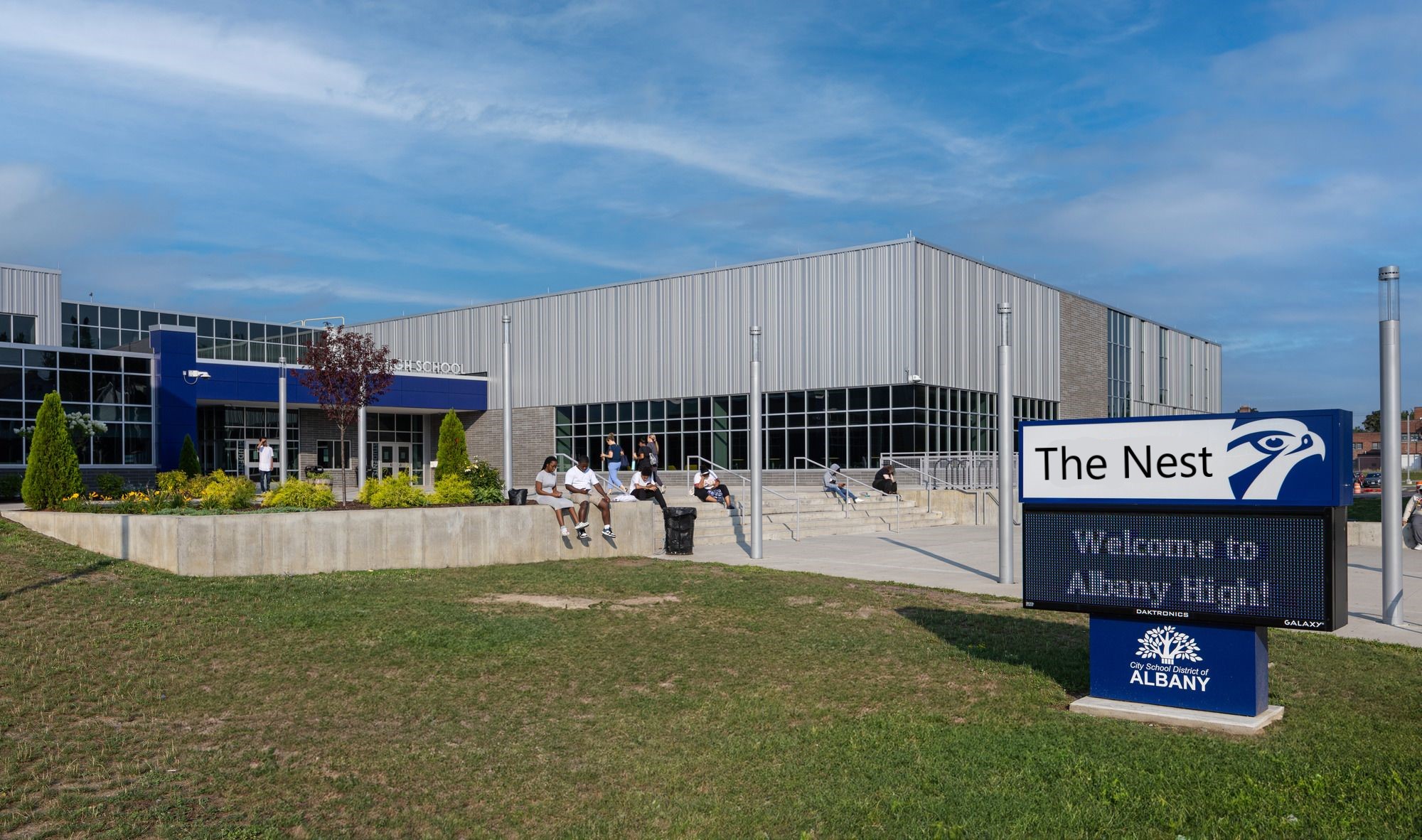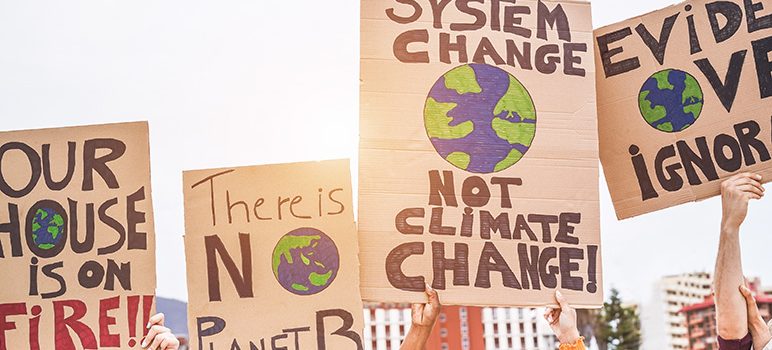Editorial: Our Climate
*The views and opinions expressed in the following piece are those of the author alone and do not necessarily reflect the views and opinions of The Nest or Albany High School.*
In the wake of the 2020 General Election and with our new administration promising progressive climate action, we must push for feasible action on the frontlines of the climate crisis. Growing up in Albany, one of the most historically disparate cities in the US, I’ve been exposed to the effects of environmental pollution and climate change firsthand. Climate change disproportionately affects poor neighborhoods like those in my hometown. The South End, a primarily black and low-income community, is constantly ravaged by trains bringing oil and carcinogens to the port nearby. (Rushing) However, with progressive legislative action in the New York State Assembly and Senate, we can change this painful pattern.
New York, as a generally progressive state, has already taken significant climate action, especially in recent years. Last year the CLCPA (Climate Leadership and Community Protection Act) was passed by our legislative bodies. This act institutes a program to reduce economy-wide fossil fuel emissions to 40% by 2030 and overall, to fewer than 85% of 1990 levels by 2050. While this is a groundbreaking law and one of the most stringent of the climate laws placed on large economies, it simply isn’t enough. The CLCPA requires more, and the CCIA, or Climate and Community Investment Act, is the way to supplement and increase the impact that the CLCPA will take toward the ultimate goal of carbon neutrality in New York.
If instated, the CCIA would impose a fee by tonnage on fossil fuel pollutants generated by large manufacturers and corporations, with a higher fee per ton for more serious pollutants. This taxation would be invested in communities and organizations negatively impacted by fossil fuels. Examples of this include reinvestment in disadvantaged communities through renewable energy projects, large-scale emissions reduction projects, tax credits and rebates for low and middle-income residents of disadvantaged communities, and worker compensation for those who have lost their fossil fuel-based jobs. It’s clear that the CCIA would benefit and aid low-income communities and help foster a long-term transition to renewable energy, so why aren’t we instituting it?
The answer is: corporations do not want to be taxed. They exist to reap profit, even at the disadvantage and exploitation of other people. Passing this law would hold corporations in New York accountable and set a national standard of environmental integrity, which is necessary given the history of oil-dependent corporations. According to Shannon Hall of the Scientific American, Exxon has known about the detrimental effects of its products and the mark they would leave on the planet since at least 1977. Their actions since then qualify as willful malice toward the environment. They knew the consequences of their actions, and followed through anyway purely for their own economic benefit. In the face of this stark injustice, the CCIA would hold corporations accountable and make them pay for their decades of wrongdoings.
President-elect Joe Biden has said that his environmental policies are influenced by his childhood in Claymont, Delaware, where oil would fall with snow in the winters because of Claymont’s proximity to oil refineries. (The Rev) He correctly attributes this proximity to the increased amounts of cancer and other illnesses in his community. The CCIA would act in New York to protect and heal frontline communities and would make New York an even frontrunner in progressive climate action. With a newly progressive federal administration, now is the perfect time to pass more stringent climate legislation and act to protect those who need it.
Work Cited
“Donald Trump & Joe Biden Final Debate Transcript 2020.” The Rev, 22 Oct. 2020, www.rev.com/blog/transcripts/donald-trump-joe-biden-final-presidential-debate-transcript-2020. Accessed 3 Dec. 2020. Time in debate: 22:33. Quote referenced: “I used to live near that when I was growing up in Claymont, Delaware and there are more oil refineries in Marcus Hook and the Delaware River than there is any place, including in Houston at the time. When my mom get in the car and when there are first frost to drive me to school, turning the windshield wiper, there’d been oil slick in the window. That’s why so many people in my state were dying and getting cancer.” Spoken by Joe Biden.
Hall, Shannon. “Exxon Knew about Climate Change almost 40 Years ago.” Scientific American, Springer Nature, 26 Oct. 2015, scientificamerican.com/article/exxon-knew-about-climate-change-almost-40-years-ago/. Accessed 3 Dec. 2020.
Rushing, Keith. “Two Black Communities in Albany Fight For Answers Amid Official Apathy.” Earth Justice, 12 Mar. 2018, earthjustice.org/blog/2018-march/two-black-communities-in-albany-fight-for-answers-amid-official-apathy. Accessed 3 Dec. 2020.


